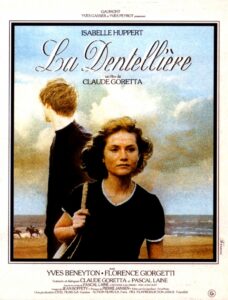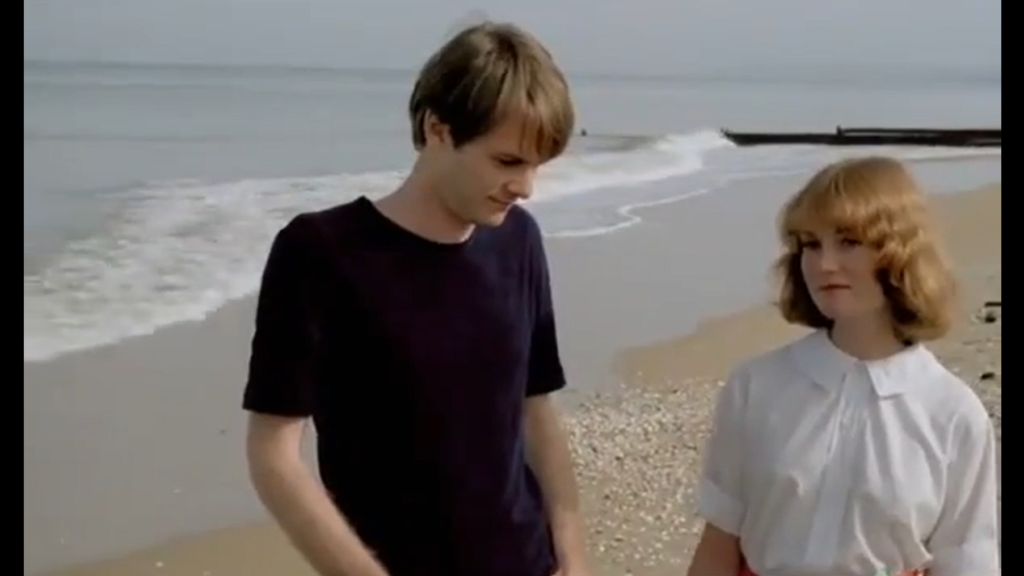“She has little, but has a natural intelligence.”
|

Synopsis:
A shy beauty salon assistant (Isabelle Huppert) falls in love with a suave literature student (Yves Beneyton), who becomes embarrassed by her lack of intellectualism.
|
|
Genres, Themes, Actors, and Directors:
- Cross-Class Romance
- French Films
- Isabelle Huppert Films
- Mental Breakdown
- Romance
Response to Peary’s Review:
As Peary points out, this “interesting”, heartbreaking tragedy — featuring a “moving performance” by Isabelle Huppert as an “extremely sweet, lovely, and passive 19-year-old beauty-salon assistant” with “the capacity to love too much” — may be “too sad” for some viewers to handle, yet it remains a powerful meditation on the difficulties inherent in cross-class romance. He notes that it was unusual at the time for a male director to show sympathy for the “ignorant” female in a couple rather than the “educated, political”, yet ultimately short-sighted male. Refreshingly, director Claude Goretta and screenwriter Pascal Laine aren’t “putting down Pomme for being shallow”; instead, “they are showing that intellectuals like Francois [Beneyton] can’t see the depth of Pomme’s beauty”.
Redeeming Qualities and Moments:
- Isabelle Huppert in an early, star-making role

Must See?
No, but it’s recommended.
Links:
|
One thought on “Lacemaker, The (1977)”
First viewing. Agreed – not must-see, but not without value… esp. if you can get beyond the first 1/3 of the film…
~ which is slow, rambling and somewhat-lethargic (note that I didn’t say ‘dull’). But it probably has to be that way for the ultimate full-effect. What’s most interesting about Huppert’s performance is the way she lets us see her Beatrice transform – subtly spring to life – once she has given over to what seems her calling: falling in love. Her character asks for so little in order to be fulfilled. Mostly she wants to be appreciated.
We view Beatrice in comparison with her ‘best’ female friend – a woman who, unlike Beatrice, is desperate to be part of a couple.
The film becomes troubling when we realize that the awkward lover of Beatrice (aka Pomme) has taken issue with her for no real reason. His decision to part seems to come out-of-nowhere. They have no discord; his friends seem to like her. So the guy comes off like a jerk.
Upon the break-up, Pomme’s astonishment is total (and here we get vaguely into the territory of Truffaut’s ‘The Story of Adele H’ from a few years before). But the film ultimately serves to remind that love can, by turns, be either a miraculous or a treacherous thing. People often don’t know what they’re doing when they enter it – but it can serve them well or turn on them, when it’s revealed it wasn’t genuine or strong enough.
The film’s end – in which it is explained how someone like Beatrice may have been viewed by famous painters – is rather fitting… making the film that much sadder.